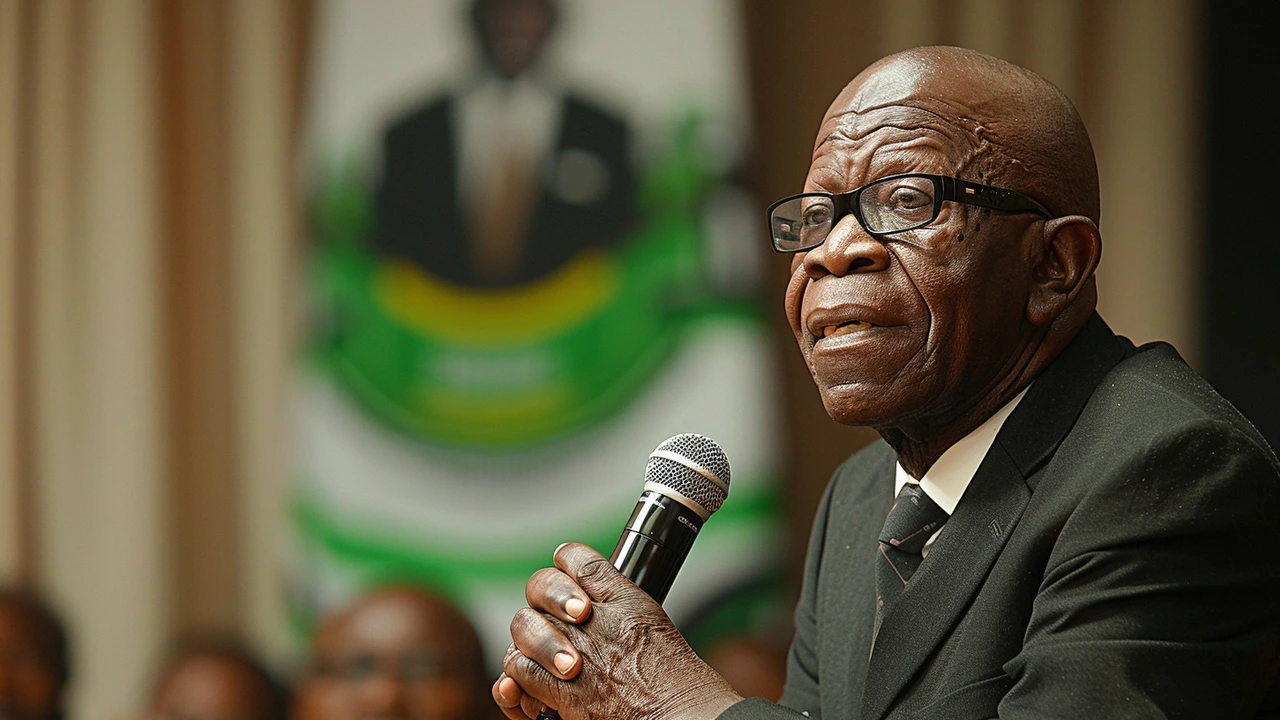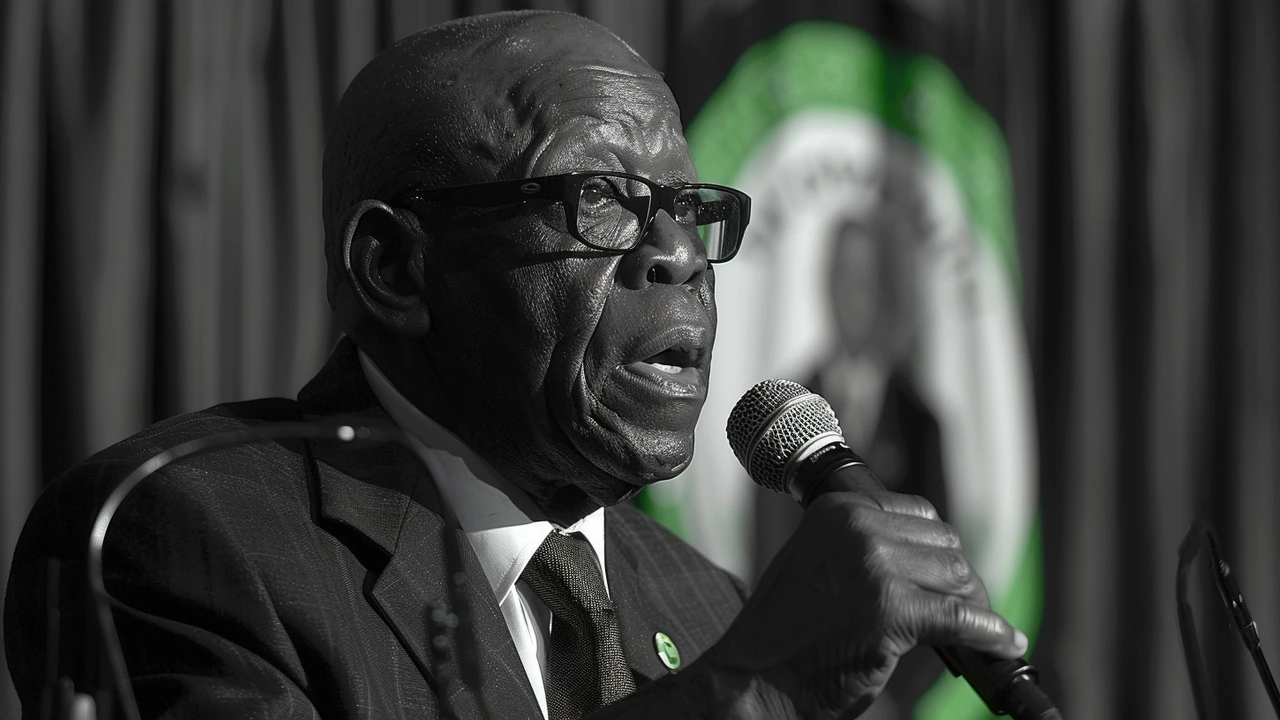Jacob Zuma Accuses Electoral Commission of Provoking Controversy with Election Results Announcement
 Jun, 4 2024
Jun, 4 2024
Jacob Zuma Accuses Electoral Commission of Stirring Political Controversy
Jacob Zuma, the embattled former President of South Africa, has pointed a sharp finger at the Electoral Commission of South Africa (IEC), blaming them for stirring controversy by announcing the results of the recent general election. This statement came during a heated address to his supporters gathered outside the Johannesburg High Court on Monday. The court was the scene of yet another chapter in continuous legal confrontations, as Zuma took on Jabulani Khumalo, his former comrade and the previous leader of the MK Party.
Zuma’s accusations are rooted in what he claims is a contentious decision by the IEC to declare election results that the MK Party had formally challenged. Zuma had previously called on the IEC to avoid announcing the results, given the MK Party’s demand for a re-run of the polls. The former President, known for his vigorous and often confrontational style, alleged that the IEC’s actions were not just administrative but were provocations aimed at undermining the MK Party’s position and fueling political unrest.
Escalating Tensions Outside the Courtroom
This legal and political saga took a violent turn when Jabulani Khumalo, who was present at the court for the hearing, faced an outbreak of hostilities from MK Party supporters. Reports from the scene describe how the situation spiraled out of control as a hostile mob hurled objects at Khumalo’s vehicle, forcing him to flee the scene under duress. This incident starkly underscores the high tensions and deep divisions that currently permeate the MK Party.
While addressing his supporters amidst the chaos, Zuma made a vigorous call for calm and restraint. “Don’t be in a rush,” he urged, in a tone that balanced authority with caution. “I heard that some of you were so angry you wanted to take action and burn things. No, don’t rush,” he implored, aiming to dissuade any immediate violent reactions from the crowd. His words, though measured, were a clear indication of the precarious balance of emotions among his supporters.
Legal and Political Implications
Nhlamulo Ndhlela, the MK Party’s spokesperson, added further fuel to the fire by announcing to the assembled supporters that Khumalo’s attempt to use the court to advance his claims had failed. However, it is crucial to note that the court had not yet delivered its formal judgement on the matter at the time of Ndhlela’s announcement. This premature declaration could contribute to further misinformation and speculation among party members and the public.
The ongoing legal battle and the accompanying political drama have broader implications for South Africa’s electoral and democratic processes. Such high-profile disputes, especially when coupled with allegations of electoral misconduct and the potential for violence, can erode public trust in electoral institutions and democratic governance. If the public perceives that elections are not conducted fairly or that their results do not reflect the will of the people, the very foundation of democratic participation is at risk.
The Role of Leadership in Mitigating Conflict
At this critical juncture, the role of leadership cannot be overstated. Leaders across the political spectrum must work to de-escalate tensions and encourage a commitment to legal and democratic processes. Zuma’s call for calm, while important, must be accompanied by broader efforts to ensure that all parties feel their concerns are being duly addressed within the bounds of the law.
Moreover, the IEC must also take steps to reaffirm its impartiality and integrity. Transparency in their processes and clear communication with all political parties can help in rebuilding any lost trust. It is in the interest of the nation that the results of elections are universally accepted as legitimate and fair. The IEC’s role, therefore, is not just administrative but critically foundational to the health of South Africa’s democracy.

Conclusion
The unfolding events outside the Johannesburg High Court highlight the volatile nature of South Africa’s current political climate. Jacob Zuma’s accusations against the IEC and the subsequent reaction from his supporters are indicative of deeper issues within the political fabric of the country. While the court’s impending judgement will provide some resolution, the broader implications for electoral fairness and democratic stability remain to be seen. In these times, it is incumbent upon all political leaders and institutions to act with utmost responsibility and integrity to safeguard the democratic future of South Africa.